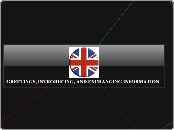Intoduction to Digital Communication
Paradigm
A set of possible meanings for the same thing, like a nod meaning yes.
Rules
Constraints on a process, like control. You automatically are aware that on a traffic light red means stop and green means go, but are just being told with by a coloured light.
- This creates a structure
Structure
The way you remember a certain procedure, like the way numbers are structured into certain ways, we notice that they are possibly a phone number, eg. 077..ect.
Data
A difference you may notice in anything.
Binary signal
e.g. On/Off
True/False
Percieved among signals
Percieved difference
Signal Percieved in a medium
Noise (unwanted data)
Psycological Noise
Can be offensive to someone without meaning to be.
E.g. Some people may not like the colour orange, others may do.
Semantic Noise
Means something else to someone else, eg. Nodding your head in some countries means yes, others it can mean no.
Audio Noise
Unwanted sound
Visual Noise
Unwanted images
Sender
Someone sending data
Syntagm
Different elements you can put things in with the same basic structure.
- The same meaning into different elements.
Pattern
Redundancy
Repetition of infomation
Like insuring what you're getting
Eg.'Can you repeat that?'
'This is the way it is, Yes.'
Message
Thing we know and have already been told, used to be infomation but due to being told the infomation more than once, it is now a message because we already knew this.
Infomation
Defined by surprise, things we didn't know and are being told for the first time
Reciever
Someone recieving data









